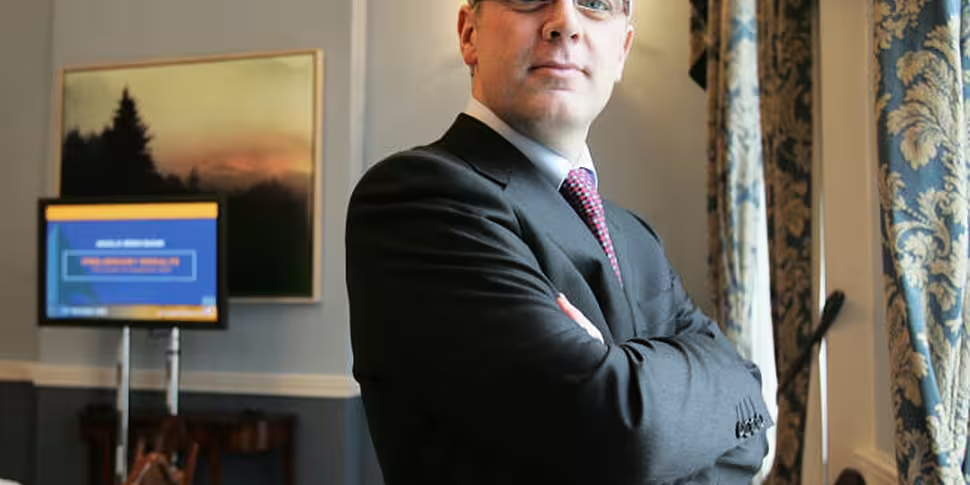David Drumm's wife is to give evidence at her husband's bankruptcy hearing in the US.
Lorraine Drumm will take to the stand early next week.
Mr. Drumm's own testimony ended yesterday, though the case will run for up to four more days and he could be recalled.
The court is considering claims by IBRC's lawyer, and the court-appointed bankruptcy trustee that the former Anglo Chief Executive fraudulently transferred funds to avoid paying creditors.
They do not want him to be released from his debts, totalling €10.5 million.
Yesterday, Drumm (47) told a Boston court he transferred money to his wife to repay a debt, during a tough time in the marriage.
Simon Carswell, Washington Correspondent with the Irish Times, who is in Boston, spoke to Newstalk's Breakfast:
On the second day of his testimony in his bankruptcy trial he outlined the circumstances of his resignation as Chief Executive of Anglo Irish Bank and how he came to establish a consultancy business in the US, after his move there in June 2009.
He set up a property business to buy distressed assets.
He said that in the second half of 2009 things got worse and worse back in Ireland because NAMA was set up and because a lot of its customers in the US, who he described as friends from his time at Anglo, became increasingly difficult to do deals with because they had debts in Anglo. He said that was the reason his US business began to unravel.
Earlier this week he told the court that he had filled out his paper work for US bank loans as “best I could”, but admitted inaccuracies due to lack of information and difficulties beyond his control.
Drumm (47) also conceded that he lied on his 2010 mortgage application to buy his home in Boston when he failed to admit that he was the subject of two legal actions in Ireland.
Honest mistake
It the defences case that anything omitted by Mr Drumm was an honest mistake - something the IBRC say couldn't have been done in good faith given Mr Drumm’s training and experience.
Lawyers for the former Anglo boss also say that transfers being questioned by the IBRC fall outside the one year time limit in which any fraud claims can be made against him.









